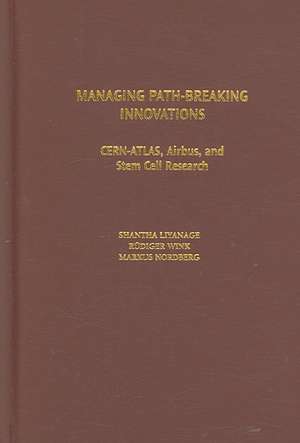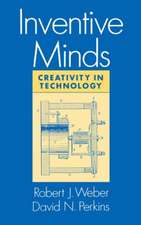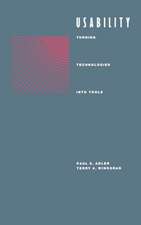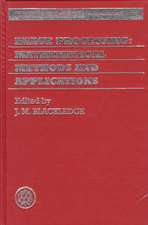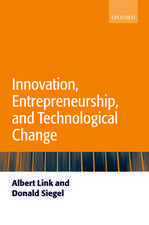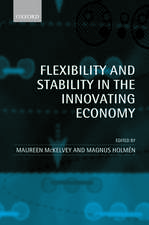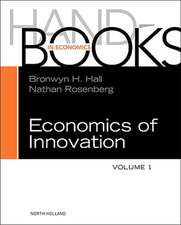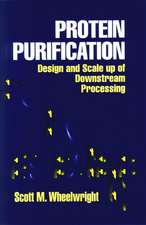Managing Path-Breaking Innovations: CERN-ATLAS, Airbus, and Stem Cell Research: Technology, Innovation, and Knowledge Management
Autor Shantha Liyanage, Rudiger Wink, Markus Nordbergen Limba Engleză Hardback – 29 dec 2006 – vârsta până la 17 ani
Preț: 440.11 lei
Preț vechi: 605.52 lei
-27% Nou
Puncte Express: 660
Preț estimativ în valută:
84.24€ • 91.54$ • 70.81£
84.24€ • 91.54$ • 70.81£
Carte tipărită la comandă
Livrare economică 21 aprilie-05 mai
Preluare comenzi: 021 569.72.76
Specificații
ISBN-13: 9781567204964
ISBN-10: 1567204961
Pagini: 348
Dimensiuni: 156 x 235 x 31 mm
Greutate: 0.64 kg
Editura: Bloomsbury Publishing
Colecția Praeger
Seria Technology, Innovation, and Knowledge Management
Locul publicării:New York, United States
ISBN-10: 1567204961
Pagini: 348
Dimensiuni: 156 x 235 x 31 mm
Greutate: 0.64 kg
Editura: Bloomsbury Publishing
Colecția Praeger
Seria Technology, Innovation, and Knowledge Management
Locul publicării:New York, United States
Notă biografică
Shantha Liyanage is Associate Professor in the Management and Employment Relations Department, The University of Auckland, New Zealand, where he leads the Technology, Knowledge and Innovation Management Program. He has worked in industry, government, and academic institutions around the world in the management of knowledge, innovation, and technology, and served as Principal Research Fellow of the Australian Research Council's funded Special Research Center for Reseach Policy. Previously on the faculty of the University of Queensland, he has published widely in the field. His most recent book is Serendipitous and Strategic Innovation (Praeger, 2006).Rudiger Wink is Professor of International Economics and serves as Director of the international program at the Hochschule fur Technik, Wirtschaft und Kulture (University of Applied Sciences), Leipzig, Germany. He also holds the positions of Senior Research Fellow at the Rurh Research Institute for Innovation and Regional Policy, Faculty of Economics at the University of Bochum, and Director of the European Program at Cologne Business School. He has published in the fields of institutional, regional, and environmental economics, innovation, and knowledge management.Markus Nordberg is the Resources Coordinator of the ATLAS project at CERN, Switzerland, where his responsibilities include budget planning and resources allocation for the ATLAS project. He has also served as Visiting Senior Research Fellow at the Centrum voor Bedrijfseconomie, Faculty ESP-Solvay Business School, University of Brussels, and as a member of the Association of Finnish Parliament Members and Scientists, TUTKAS.
Recenzii
Liyanage, Wink and Nordberg explore the connection between scientific progress and patterns of innovations by investigating three central programs: the particle physics experiments in the CERN-ATLAS collaboration, aviation research at the Airbus consortium, and biotechnology advances in stem cell research groups. Describing path-breaking innovation as a constellation of events, situations and manifestations of change, learning, leadership and motivation, the authors organize their study around the themes of change processes, work and production philosophies, strategies and collaborations, change environment, spatial dimension, leadership and funding. They conclude that path-breaking innovations are based on good science embedded in a social-system of openness, tolerance, respect and patience.
